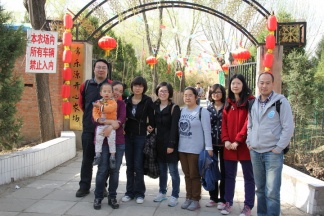Difference between revisions of "Research underconstruction"
From atmoschem
(→Long-range transport of pollutants) |
|||
| Line 26: | Line 26: | ||
| − | |||
=Secondary organic aerosols (SOA)= | =Secondary organic aerosols (SOA)= | ||
| Line 34: | Line 33: | ||
Team members: [[Nan LI]], [[Li XING]], [[Tzung-May FU]] | Team members: [[Nan LI]], [[Li XING]], [[Tzung-May FU]] | ||
| − | + | {{Box|type=l_red_dark|text=Sources of SOA in China}} | |
| − | {{Box|type= | + | |
{{HideProject| | {{HideProject| | ||
Publication: Fu et al. (2012) | Publication: Fu et al. (2012) | ||
}} | }} | ||
| − | + | {{Box|type=l_red_dark|text=Sources of SOA in the PRD region}} | |
| − | + | ||
| − | {{Box|type= | + | |
{{HideProject| | {{HideProject| | ||
Publication: Li et al. (2013) | Publication: Li et al. (2013) | ||
}} | }} | ||
| − | + | {{Box|type=l_red_light|text=Organic matter to organic carbon mass ratio in Chinese urban aerosols}} | |
| − | + | ||
| − | {{Box|type= | + | |
{{HideProject| | {{HideProject| | ||
Publication: Xing et al. (2013) | Publication: Xing et al. (2013) | ||
}} | }} | ||
| − | + | {{Box|type=l_red_light|text=A new physically-based parameterization scheme for organic aerosol size evolution}} | |
| − | + | ||
| − | {{Box|type= | + | |
| − | + | ||
=Chemistry-Climate interactions and Chemistry-Climate Model (CCM) development= | =Chemistry-Climate interactions and Chemistry-Climate Model (CCM) development= | ||
Team members: [[Jinxuan CHEN]], [[Yaping MA]], [[Wanying KANG]], [[Aoxing ZHANG]], [[Ye QING]] | Team members: [[Jinxuan CHEN]], [[Yaping MA]], [[Wanying KANG]], [[Aoxing ZHANG]], [[Ye QING]] | ||
| − | + | {{Box|type=l_red_light|text=Accounting for the impacts of the subgrid variability of RH on aerosol optical depth in large-scale models}} | |
| − | {{Box|type= | + | |
{{HideProject| | {{HideProject| | ||
Publication: | Publication: | ||
Revision as of 09:42, 25 April 2014
Contents
- 1 Sources of Chinese air pollutants
- 2 Volatile organic compounds (VOCs): global and regional emissions and impacts
- 3 Secondary organic aerosols (SOA)
- 4 Chemistry-Climate interactions and Chemistry-Climate Model (CCM) development
- 5 Measurements of Chinese PM2.5 composition
- 6 Air-sea exchange of organic materials
- 7 Long-range transport of pollutants
Sources of Chinese air pollutants
Team members: Nan LI, Yue JIAN, Heng TIAN, Hansen CAO, Tzung-May FU
Publication: Fu et al. (2012)
Publication:
Publication:
Volatile organic compounds (VOCs): global and regional emissions and impacts
Team members: Hansen CAO, Heng TIAN
Volatile organic compounds (VOC) is an important class of atmospheric constituents, impacting the production of ozone, the oxidation power of the atmosphere, the lifetime of other green house gases and pollutants, and the production of organic aerosols.
VOCs are emitted into the atmosphere from both natural and anthropogenic activities, and quantifying these many overlapping sources can be a challenge. We use satellite observations of formaldehyde (HCHO), an oxidation product of many VOCs, to make 'top-down' estimates of VOC emissions from each source.
Publication: Fu et al. [2007], Millet et al. [2007], Palmer et al. [2006]
Secondary organic aerosols (SOA)
Secondary organic aerosols (SOA) are the organic mass transferred into the particulate phase in the atmosphere. Many recent observations have found SOA concentrations to be much higher than can be explained by current models in most parts of the atmosphere.
Using a global 3-D atmospheric chemistry model, we investigate the missing source of SOA. In particular, we find that the heteorogeneous uptake of dicarbonyls in aeorsols and clouds can help explained the observed SOA concentrations and variability.
Team members: Nan LI, Li XING, Tzung-May FU
Publication: Fu et al. (2012)
Publication: Li et al. (2013)
Publication: Xing et al. (2013)
Chemistry-Climate interactions and Chemistry-Climate Model (CCM) development
Team members: Jinxuan CHEN, Yaping MA, Wanying KANG, Aoxing ZHANG, Ye QING
Publication:
Measurements of Chinese PM2.5 composition
Team members: Wei XU, Jinxuan CHEN, Heng TIAN, Aoxing ZHANG
Air-sea exchange of organic materials
Team members: Cenlin HE, Tzung-May FU
The ocean can act both as a source and a sink of atmospheric organic material. The air/sea exchange of organic materials is complexly regulated by both physical and biological conditions at the interface and poorly understood. We developed a new conceptual model to account for these physical and biological processes, including the presence of microfilms, production/consumption of organic matter by marine life, and other photochemical processes.
Publication: He and Fu (2013)
Long-range transport of pollutants
Team member: Yue JIAN
Publication: Jian and Fu (2014)

[ Open Urban]
Skin: GoMediaWiki free skin